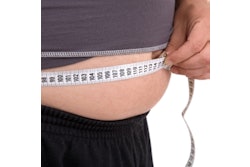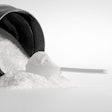
Switching to a plant-based diet may alleviate periodontal inflammation in patients at risk for cardiovascular disease (CVD), according to a study recently published in the Journal of Clinical Periodontology.
Furthermore, the diet changes positively affected inflammatory markers, including bleeding on probing (BOP) and periodontal inflamed surface area (PISA), the authors wrote.
"A trend towards stabilization of the inflammatory parameters (BOP, PISA) was observed in the whole-food plant-based diet (WPBD) group," wrote the authors, led by C.L. Pappe of Humboldt-Universität Zu Berlin in Germany (J Clin Periodontol, October 14, 2024).
CVD and periodontitis share common risk factors, including diet, suggesting possible links and immune similarities between the two. Tissue breakdown in the periodontium increases proinflammatory markers that contribute to systemic inflammation and affect CVD risk and progression, they wrote.
For this study, 36 adult participants from a randomized clinical trial received periodontal assessments. The intervention group followed a whole-food plant-based diet (WPBD) for 16 weeks, while the control group maintained their usual diet. To prevent changes in oral hygiene behavior, patients were not given oral hygiene instructions.
Measurements were taken at baseline (t1), week 8 (t2), and week 16 (t3). Measurements taken during periodontal exams included BOP, PISA, plaque index (PI), salivary pH, and matrix metalloproteinase 8 (MMP 8). Medical histories were also collected, and all participants had a history of hypertension, they wrote.
At t3, the mean PISA for the index teeth decreased by 32 mm² in the WPBD group and increased by 22.6 mm² in the control group (intragroup p = 0.255 and p = 0.977, respectively). Changes in BOP were similar between groups (intragroup p = 0.89 and p = 0.839, respectively), according to the results.
Additionally, MMP 8 levels dropped by 50.73 ng/mL (117) in the WPBD group and by 5.40 ng/mL (96.6) in the control group (intragroup p = 0.066 and p = 0.837, respectively). The difference in change (t3-t1) between the groups was p = 0.001, p = 0.003, and p = 0.032, respectively. Saliva pH increased only in the WPBD group (intragroup p = 0.007).
However, the study had limitations. Although all patients received an intensive eight-week nutritional training to follow at home, full adherence to the regimen could not be guaranteed, the authors wrote.
"Transitioning to a 16-week WPBD can potentially stabilize periodontal inflammatory parameters in patients with risk for CVD," they concluded.




















